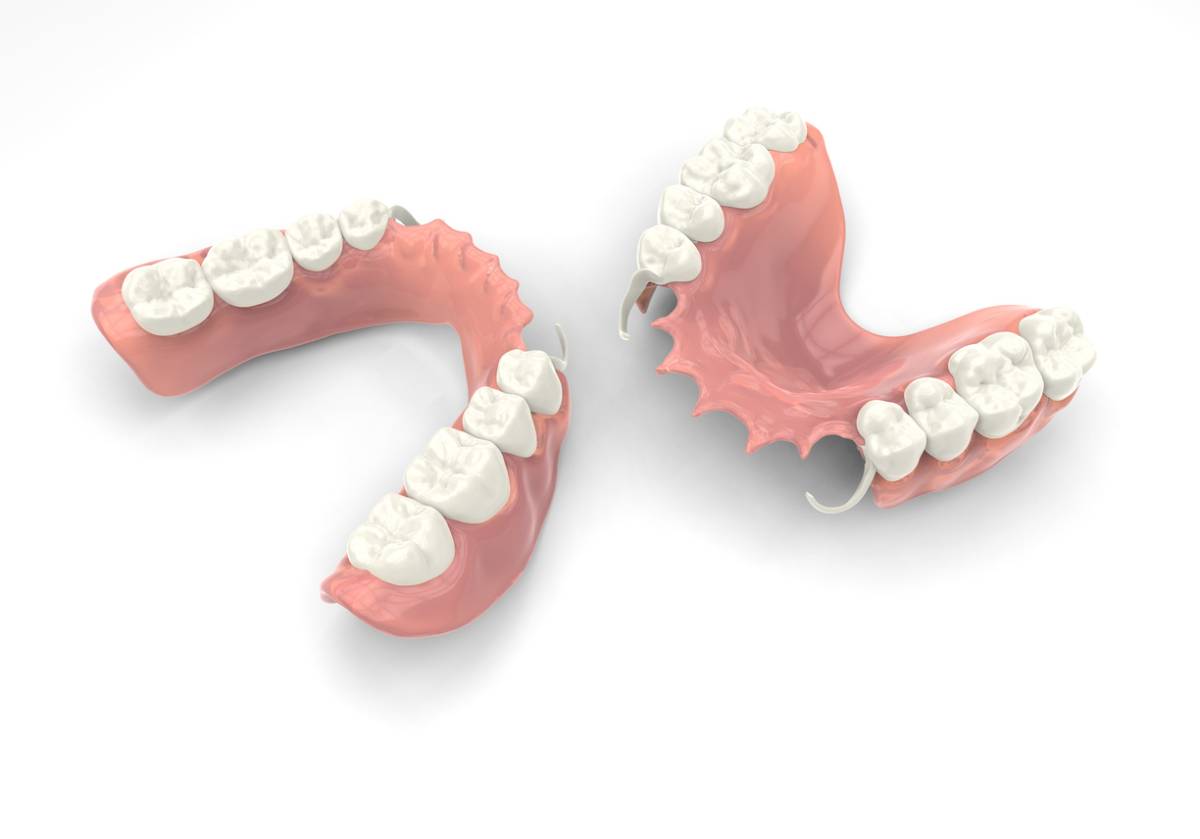When you are missing several or all of your teeth, dentures can be a great restoration solution that can help you improve your nutrition, self-confidence, and quality of life. But what is the best type of denture? Continue reading to learn about the main advantages and disadvantages of various types of dentures.
What Is the Best Type of Denture?
It would not be correct to say that there is one best type of denture. Each patient has health considerations, lifestyle, budget, and personal preferences that have to be taken into account when choosing the right denture. An option that might be ideal for one person can be absolutely unsuitable for another one.
Your dentist is the best person to help you choose the type of denture that will best accommodate all your goals and needs. However, below, we describe the pros and cons of different types of dentures to help you have an informed approach to the question at hand.
Traditional Full or Partial Dentures
Full dentures can also be called complete dentures, meaning that this dental restoration replaces the entire arch of missing teeth. Partial dentures, as the name suggests, replace only several teeth in a row. Traditional dentures are placed on top of your gums and are supported by the jawbone (complete dentures) or surrounding teeth (partial dentures).
The advantages of traditional dentures include:
- Wearing traditional dentures typically does not require a lot of preparational procedures
- Traditional dentures are suitable for the majority of patients
- Traditional dentures can be more affordable compared to other options
The disadvantages of traditional dentures include:
- Traditional dentures might not always be secure in the mouth due to the method of attachment. As a result, patients can experience rubbing, sores in the mouth, or dentures slipping during meals.
- Traditional dentures provide only about 20 to 25% of natural bite force, limiting the foods you can eat.
- You might need to use dental adhesive with traditional dentures to make them more secure and to reduce rubbing.
Implant-Retained (Snap-In) Full or Partial Dentures
This type of denture is attached to and retained by dental implants—metal posts permanently placed into the jawbone. Implant-retained dentures are removable.
The advantages of implant-retained dentures include:
- Implant-retained dentures are typically secure in the mouth with reduced risk of slipping and shifting because they snap into dental implants. Thus, they allow you to enjoy a wider variety of foods, help improve nutrition, and provide more confidence and comfort in day-to-day life.
- Due to the fact that snap-in dentures are attached to dental implants, wearing them reduces the risk of bone resorption. Implants stimulate the jawbone similarly to natural teeth, preventing it from losing its density.
The disadvantages of implant-retained dentures:
- Unfortunately, dentures retained by dental implants are not a good option for every patient. Getting dental implants is a surgical procedure that requires a long healing and recovery period. Also, your body has to have a good regeneration capability.
Implant-Supported Full or Partial Dentures
In their structure, implant-supported dentures are similar to snap-in dentures. However, they are permanently attached to dental implants.
The advantages of implant-supported dentures:
- Implant-supported dentures do not need to be removed for cleaning and can be brushed just like natural teeth.
- Implant-supported dentures are the most secure and stable restoration solution. They do not slip, snap, or shift in the mouth when you talk or eat.
- This type of denture can provide up to 95% of natural bite force. As a result, you will be able to eat almost all the foods you could eat with your natural teeth.
The disadvantages of implant-supported dentures include:
- The main disadvantage of this type of denture is the same as that of snap-in dentures: they are not suitable for everyone due to the health requirements you have to meet in order to get dental implants.
Immediate Dentures
Immediate dentures are typically traditional dentures that a patient can wear straight away after teeth removal. However, in most cases, immediate dentures are just a temporary solution and are uncomfortable for prolonged wear. Usually, a patient switches them off for permanent dentures once they are custom-made.
Get Comfortable Dentures at East Highland Dental
Do not hesitate to sign up for an appointment with an experienced dentist at East Highland Dental today. We will take your oral health, budget, and personal preferences into consideration to offer you the most suitable type of denture. In our office, we work with high-quality materials and use modern approaches to provide our patients with comfortable and long-lasting dental restoration solutions.

